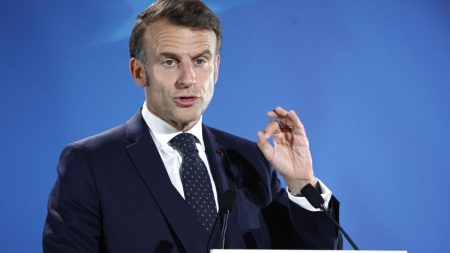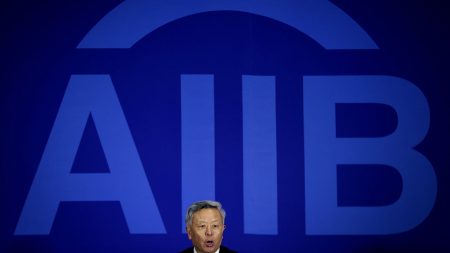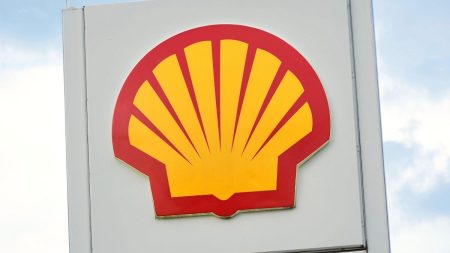The UK’s Persistent Inflation Challenge: A G7 Outlier
The United Kingdom finds itself grappling with stubbornly high inflation, significantly outpacing its G7 counterparts. This persistent inflationary pressure, considerably above the Bank of England’s 2% target, underscores the complex interplay of global and domestic factors impacting the UK economy. Analysis by the Organisation for Economic Co-operation and Development (OECD) reveals that the UK has consistently held the highest inflation rate among G7 nations since June 2024, a trend continuing into November. While the UK’s Consumer Prices Index including owner occupiers’ housing costs (CPIH) reached 3.5% in November 2024, other G7 members experienced significantly lower rates, with France at 1.3%, Italy also at 1.3%, Germany at 2.2%, Canada at 1.9%, the US at 2.7%, and only Japan approaching similar levels at 2.9%. This divergence highlights the unique challenges facing the UK economy. The more commonly used Consumer Price Index (CPI) also rose to 2.6% in November, still significantly above the Bank of England’s target.
Energy Prices: A Key Driver of UK Inflation
A primary driver of the UK’s elevated inflation is the surge in energy prices. Geopolitical conflicts, notably the Russia-Ukraine war and the Israel-Hamas conflict, have disrupted energy markets and contributed to price volatility. The increased demand for energy following the pandemic, coupled with a colder-than-expected winter in 2024, further exacerbated the situation. The UK’s dependence on imported energy makes it particularly vulnerable to global price fluctuations. Rising wholesale energy prices, driven by post-pandemic demand resurgence, have placed upward pressure on consumer energy bills. Furthermore, increasing network costs for energy distributors, passed on to consumers, have added to the inflationary pressures. The transition from fossil fuels to renewable energy sources, while crucial for long-term sustainability, has also contributed to short-term price increases as renewable infrastructure is developed and deployed.
Supply Chain Disruptions and Global Uncertainties
Beyond energy, supply chain disruptions continue to plague the UK economy. The surge in demand for consumer goods during the pandemic, coupled with increased online shopping and e-commerce activity, created significant bottlenecks in supply chains. These disruptions persist, contributing to rising prices across various sectors. Geopolitical tensions, particularly in the Middle East, including the Red Sea attacks, have further exacerbated supply chain challenges, leading to shipping delays and cancellations. As a major net importer of goods, the UK is highly susceptible to these global disruptions, further fueling inflation.
Food Prices and Wage Growth: Adding to the Inflationary Mix
The Russia-Ukraine conflict, involving two key global agricultural producers, has significantly impacted food prices. The disruption to the supply of essential commodities like corn, wheat, fertilizer, and sunflower oil has led to price increases, adding to the overall inflationary pressure in the UK. Simultaneously, the UK has experienced robust wage growth, reflecting a resilient labor market. While positive for employment, this wage growth can also contribute to inflation as increased labor costs are often passed on to consumers through higher prices for goods and services.
The Broader Economic Context and Policy Implications
The confluence of these factors – soaring energy prices, persistent supply chain disruptions, rising food costs, and wage growth – presents a complex challenge for UK policymakers. The Bank of England faces the difficult task of controlling inflation without stifling economic growth. Balancing these competing objectives requires a nuanced approach to monetary policy, considering the interconnectedness of global and domestic economic forces. The UK’s unique vulnerability to global disruptions necessitates strategies to enhance domestic resilience and mitigate the impact of external shocks.
Looking Ahead: Navigating the Inflationary Landscape
The UK’s persistent inflation challenge requires a multi-faceted approach. Addressing energy security through diversification of sources and investment in renewables is crucial. Strengthening supply chain resilience through diversification of suppliers and bolstering domestic production can mitigate the impact of global disruptions. Targeted measures to address food security and manage wage growth are also essential. The Bank of England’s monetary policy decisions will play a critical role in navigating this complex landscape and steering the UK economy toward a more stable inflationary environment. The interplay of these factors will determine the UK’s ability to tame inflation and achieve sustainable economic growth in the months and years ahead.














